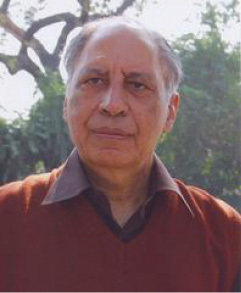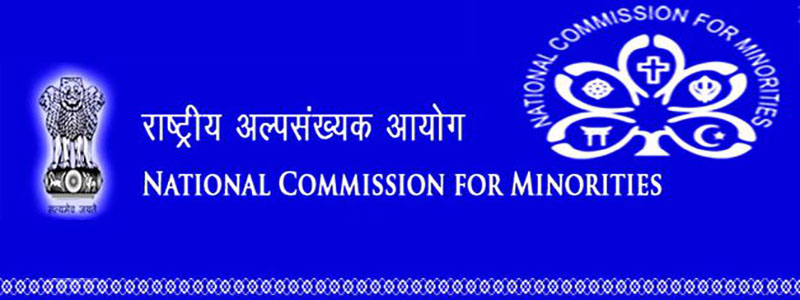.
PT: What does the designation/role of a ‘Parsi Member’ at the NCM constitute?
Keki Daruwalla: As the most literate Community in the country, we must understand that the NCM was formed by an Act of Parliament (1992). Section 9 of the Act lays down the functions of the Commission as under:
a) NCM will evaluate progress of the development of minorities;
b) Monitor working of constitutional safeguards provided by Constitution and our laws;
c) Make recommendations for implementing safeguards for the protection of the interests of minorities;
d) Look into specific complaints regarding deprivation of rights;
e) Case studies to be undertaken into problems/discrimination;
f) Conduct studies into socio-economic and educational development of minorities;
g) Suggest measures which the Government could undertake for minorities;
h) Make periodical reports to Govt. on difficulties facing minorities; and
i) Take into consideration any other mater referred to it by the Central Govt.
.
PT: Does the position of ‘Parsi Member’ empower the individual holding this post to affect any kind of religious changes?
Keki Daruwalla: No. The Parsi Member or any other member cannot affect any religious change. Even the suggestion is laughable. The Government maintains a zero-interference policy in religious matters, especially to do with minority communities.
.
PT: What qualities within a ‘Parsi Member’ would justify holding this position?
Keki Daruwalla: The candidate member must have good knowledge, integrity, ability and stature to deal with the State and Central Governments. He should come with tremendous administrative experience and be willing to dedicate a lot of his time to this capacity. This is a Delhi-based office and has weekly meetings, though earlier the meetings would be formally held once a month. So the candidate needs to be present every week for these meetings. Some of the earlier Parsi members weren’t able to make it as often. Most importantly, the Parsi Member must work for the welfare of all communities. I worked for 18 States, and handled complaints mostly from Muslims and Christians. I visited every single communal riot scene — 10 major conflagrations. I had nothing to do with the then ruling Congress party. The Member should not be a party man, especially belonging to the ruling party.
 The Parsi Member or any other member cannot affect any religious change. Even the suggestion is laughable. The Government maintains a zero-interference policy in religious matters, especially to do with minority communities.
The Parsi Member or any other member cannot affect any religious change. Even the suggestion is laughable. The Government maintains a zero-interference policy in religious matters, especially to do with minority communities.
.
.
No member can dilute or affect the socio-religious fabric of the community. The Commission has nothing to do with altering any religious beliefs – it’s not interested in your religious beliefs!
PT: What is the procedure for the appointment of a Parsi Member? On what basis does the Govt. appoint an individual to this post?
Keki Daruwalla: It is a complete Government appointment. There is no particular mechanism. The government chooses the individual based on his/her eminence as a statesman and their personal record, taking into account the contribution of the individual towards the welfare of the community. There are a few internal mechanisms as well. The Commission has been dormant for the last three to four months. As of right now I’m not aware of any member being appointed.
.
PT: Do recommendations to the Government by Community bodies like the BPP make a difference?
Keki Daruwalla: Quite honestly, it holds close to no weight really. The NCM isn’t the Government’s top priority.
.
PT: Can individual members of minority communities appeal directly to the Ministry? Is their voice heard?
Keki Daruwalla: Yes, why not? Appeal to Govt. directly if you want to!
.
PT: Currently there is an Orthodox-Reformist divide within the community, with the orthodox fearing that a reformist representative could dilute the socio-religious fabric of the Community; while the reformists feel disappointed that an orthodox representative would mean continued stagnancy, gender-bias et al. What is your take on this? What is the need of the hour?
Keki Daruwalla: No member can dilute or affect the socio-religious fabric of the community. The Commission has nothing to do with altering any religious beliefs – it’s not interested in your religious beliefs! The need of the hour is that we as a community forget these absurd inner fights, move with the times and with the world. Don’t forget that planet Earth moves round the Sun at a speed of 67000 miles per hour! We Bawajis should move at a speed of at least 1 mile an hour! Let’s not be stuck in our pre-historic mud.
.
PT: Why did you choose to support Mr. Tamboly for the post of Parsi Member?
Keki Daruwalla: I have elucidated that in my letter to the BPP Chairman, provided as under:
“Dear Mr. Yazdi Desai,
I am not sure if we have met, and we hardly know each other. I live in Delhi and have been a member of the NCM. Hence I am taking the liberty to write. You head the most important Parsi/ Zoroastrian body in India, hence I am addressing you. Only yesterday I came to know about the BPP recommending Mr. Dinshaw Tamboly whose services to the community are well known and admired. I wish to make four points:
1. First recommending and then withdrawing the recommendation turns the community and the BPP into a joke.
2. The National Commission for Minorities (NCM) is for all minorities and the Parsi Member should have the ability and know how to deal with the problems of all communities, problems which are much graver than some incident or defalcation in some Baug or the other, or a dispute at the Doongar Vadi. I can’t think of anyone better than Mr. Dinshaw Tamboly to represent the community at the NCM.
3. The contribution of Parsi Members, apart from Gen. Adi Sethna and a few others, to the NCM has been a bit of a joke. Members come once a week from Mumbai, attend a meeting, go back and their PAs sign their letters and manage affairs. Whether Mr. Tamboly lives part time in Delhi or not, he is the kind who will have a firm grip over the matters that concern the NCM and the community.
4. Religious matters are NEVER NEVER NEVER discussed in the NCM. So whether you are a Member of the WAPIZ or a ‘reformist’ holding views in consonance with the modern world and global progressive thought, does not matter. I hope you would see reason and withdraw (finally) your earlier withdrawal letter.
With profound regards,
Keki N. Daruwalla,
Former Secretary to the Govt. of India, Former Member NCM. (kekikhurshid@gmail.com)”
- દિકરી એટલે બીજી માં… - 20 April2024
- નાગપુરની બાઈ હીરાબાઈ એમ. મુલાનદરેમહેરનો ઇતિહાસ - 20 April2024
- વિશ્વ ભારતી સંસ્થાન દ્વારા રતિ વાડિયાનુંસન્માન કરવામાં આવ્યું - 20 April2024
